Second life: Etel gives Lina Bo Bardi's furniture a new lease on life
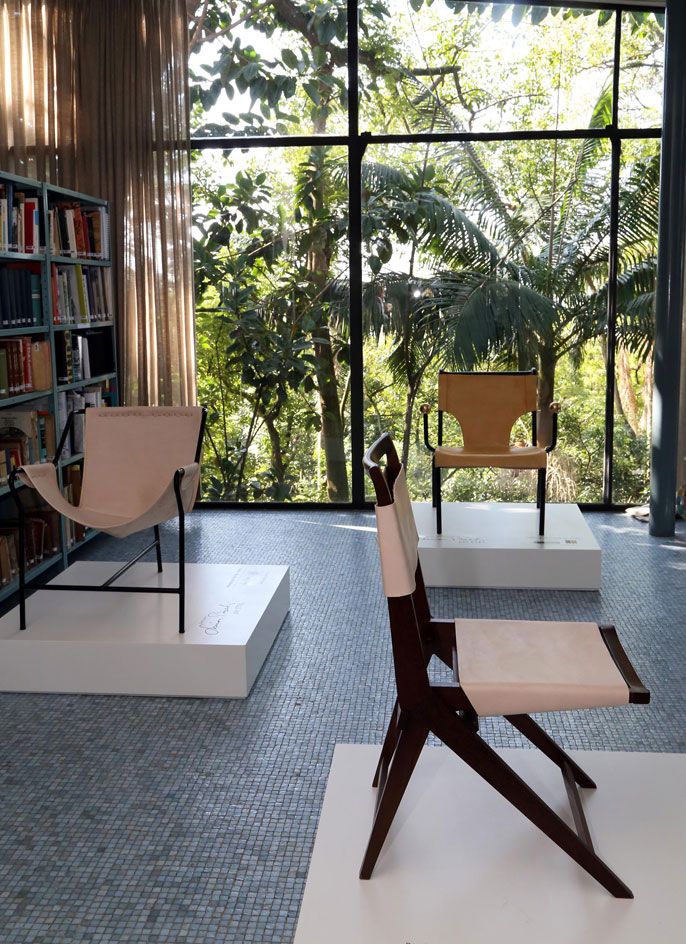
Brazilian furniture company Etel is launching a new series of reissues, taking on the work of Italian-Brazilian architect Lina Bo Bardi. A collection of four pieces was presented this week, part of a larger range of 12 re-editions, which the company will release over the next year.
‘Etel's philosophy is to retell and preserve the history of Brazilian design, and to value the artistic legacy of these great designers,’ explains Lissa Carmona, daughter of founder Etel Carmona and now at the helm of the family-run company. They produce furniture by living Brazilian architects and designers, alongside reissues by the likes of Oscar Niemeyer and Sérgio Rodrigues.
Carmona’s passion for Bo Bardi brought her to explore her furniture work, which until now, was never produced on a large scale. Working closely with the Instituto Lina Bo and P. M. Bardi, the Carmona family selected 12 pieces from the architect’s furniture repertoire. Throughout her career as an architect, Bo Bardi expanded her reach, working on landscape design, urbanism, graphic design and illustration, as well as designed the furniture for her buildings (such as the iconic MASP in Sao Paulo). Her furniture successfully merged a modernist, innovative aesthetic with traditional Brazilian concepts.
Mainly seating, the pieces were designed as part of her partnership with Giancarlo Palanti under the Palma Art Studio, in the late 1940s and early 1950s. Bo Bardi adapted her design to the manufacturing possibilities of the Brazilian industry at the time, using steel tubes, wood leather and indigenous textiles. Some of the pieces, such as the Brass Balls chair, were designed for Bo Bardi’s own residence in Sao Paulo, a glass house in the middle of a tropical garden where Etel chose to present the collection to the Brazilian public. Other designs never reached the prototype stage, let alone go into production. These have been manufactured by the company following Bo Bardi’s sketches.
Carmona notes how freedom was always at the core of Bo Bardi’s work, and the aspect of her production that mainly attracts her and interests her. ‘Lina's work is of very high importance,' she adds, 'because as a multifaceted artist she has left an unquestionable legacy to Brazil and therefore deserves a place of prominence in the ETEL Collection.’
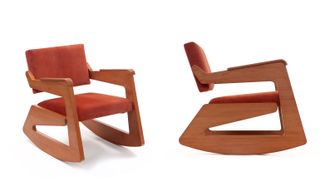
'It is more moral than a frilly couch,' said Bo Bardi of her rocking chair design from 1948, one of four pieces reissued by Etel this month
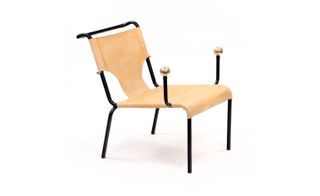
Bo Bardi adapted her design to the manufacturing possibilities of the Brazilian industry at the time, using steel tubes, wood leather and indigenous textiles. Her 'Chair with Brass Balls', designed in 1951, was produced in a limited run of six for her private residence
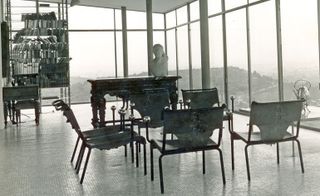
The full set of 'Chair with Brass Balls' in Bo Bardi's home
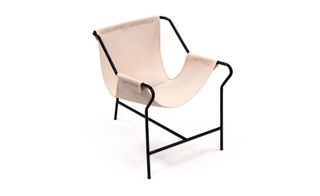
The architect's furniture work successfully merged a modernist, innovative aesthetic with traditional Brazilian concepts. The 1949 'Metal Tripod Chair', for example, was inspired by the gesture of sitting in the hammocks of cargo-passenger boats along the São Francisco River
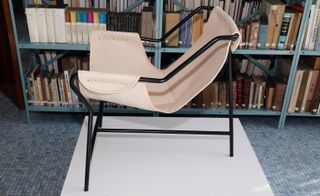
In true Bo Bardi style, the chair combines Brazilian tradition with modernist inspirations from the chairs of Mies van der Rohe and Marcel Breuer
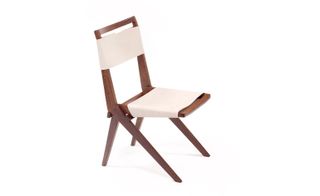
The 'MASP 7 de Abril' folding chair was designed in 1947 for the iconic MASP building in Sao Paulo, featuring Jacarandá, a local rosewood, and leather
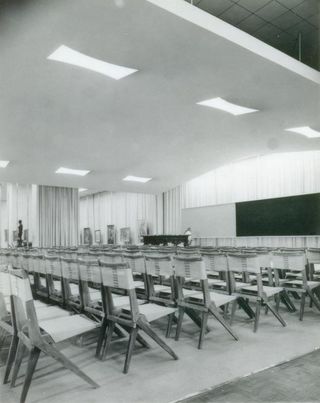
The 'MASP 7 de Abril' folding chair was inspired by circus chairs, and used in the museum's auditorium
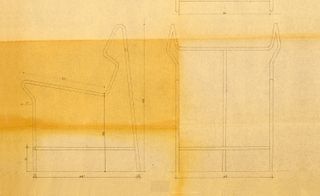
Some of the reissued designs were never made and have now been manufactured by following Bo Bardi’s sketches
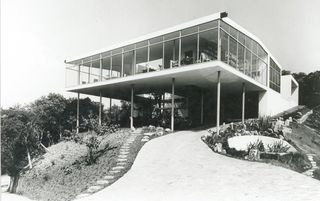
Etel chose to present the collection to the Brazilian public at the architect's iconic Casa de Vidro in Sao Paulo
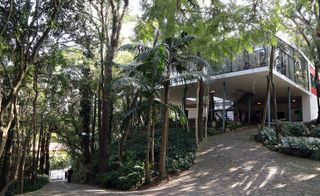
The residence was a glass house in the middle of a tropical garden, which now houses the Instituto Lina Bo and P. M. Bardi
Wallpaper* Newsletter
Receive our daily digest of inspiration, escapism and design stories from around the world direct to your inbox.
Rosa Bertoli was born in Udine, Italy, and now lives in London. Since 2014, she has been the Design Editor of Wallpaper*, where she oversees design content for the print and online editions, as well as special editorial projects. Through her role at Wallpaper*, she has written extensively about all areas of design. Rosa has been speaker and moderator for various design talks and conferences including London Craft Week, Maison & Objet, The Italian Cultural Institute (London), Clippings, Zaha Hadid Design, Kartell and Frieze Art Fair. Rosa has been on judging panels for the Chart Architecture Award, the Dutch Design Awards and the DesignGuild Marks. She has written for numerous English and Italian language publications, and worked as a content and communication consultant for fashion and design brands.
-
 Patek Philippe brings 15 new timepieces to Watches and Wonders 2025
Patek Philippe brings 15 new timepieces to Watches and Wonders 2025The Swiss manufacturer showcases its intricate complications and elegant designs at the annual trade show with a suite of new models
By Anna Solomon Published
-
 Watches & Wonders 2025: preview Richemont’s latest innovations, on show at the Geneva watch fair
Watches & Wonders 2025: preview Richemont’s latest innovations, on show at the Geneva watch fairDiscover eight enticing timepieces from the luxury group, showcased this week at the Geneva fair
By Simon Mills Published
-
 Masters of midcentury modern design and their creations spotlighted in new book
Masters of midcentury modern design and their creations spotlighted in new book‘Mid-Century Modern Designers’ is a new book from Phaidon celebrating those who shaped the period and their notable creations, from furniture to objects
By Tianna Williams Published
-
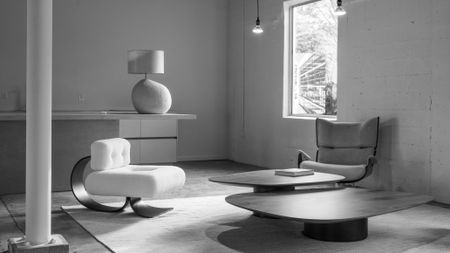 Espasso launches Arthur Casas furniture in Miami
Espasso launches Arthur Casas furniture in MiamiDesign Miami 2022: Espasso presents new Arthur Casas furniture, unveiling the Tapajós collection inspired by Brazilian heritage
By Maria Sobrino Published
-
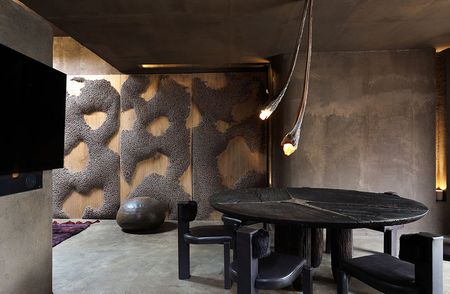 Meet the Brazilian architect branching out into organic furniture design
Meet the Brazilian architect branching out into organic furniture designGustavo Neves creates raw and natural objects that have been launched by The Invisible Collection
By Rosa Bertoli Last updated
-
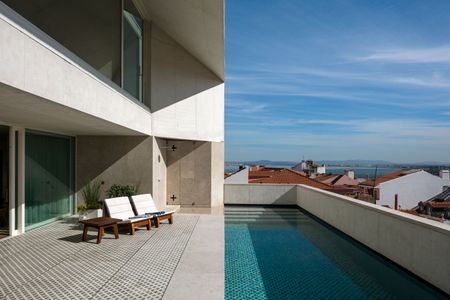 Paulo Mendes da Rocha and Inês Lobo remodel a Lisbon family home
Paulo Mendes da Rocha and Inês Lobo remodel a Lisbon family homeBy Emma O'Kelly Last updated
-
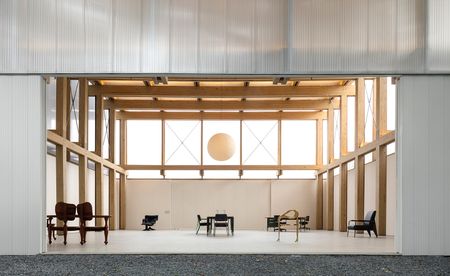 Light box: Marcio Kogan brings translucent clarity to São Paulo retail for Micasa
Light box: Marcio Kogan brings translucent clarity to São Paulo retail for MicasaBy Harriet Thorpe Last updated
-
 Local midcentury masters mingle in the São Paulo apartment of a modern mall mogul
Local midcentury masters mingle in the São Paulo apartment of a modern mall mogulBy Cinthia Rodrigues Published
-
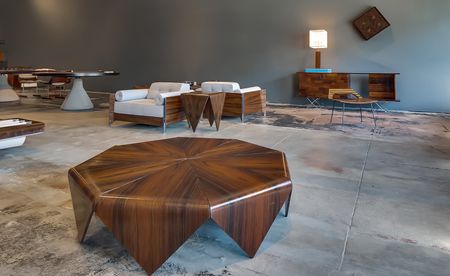 Brazilian furniture pop-up Studio 55 makes waves in West Hollywood
Brazilian furniture pop-up Studio 55 makes waves in West HollywoodBy Michael Slenske Last updated
-
 Going dark: playing with shades of grey in a Tribeca penthouse
Going dark: playing with shades of grey in a Tribeca penthouseBy Pei-Ru Keh Last updated
-
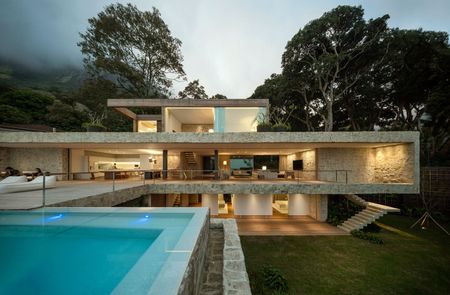 Open interiors and sandstone walls define this Brazil home by Arthur Casas
Open interiors and sandstone walls define this Brazil home by Arthur CasasBy David Lisbon Last updated